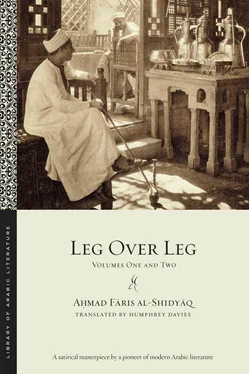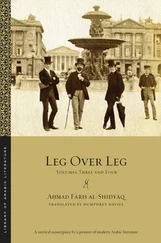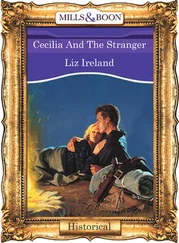or the samandal ,
“a bird in India that cannot be burned by fire”
or the tihibbiṭ ,
“a grayish bird that clings on with its feet and makes a sound as though it were saying anā amūt anā amūt (“I am dying, I am dying”)
or the unan ,
“a bird like a dove whose sound is a moan—‘ouhi-ouhi’”
or the zummāḥ ,
“a bird that takes children from their cradles”
or the hadīl ,
“a chick in the days of Nūḥ, peace be upon him, that died of thirst or was caught by some bird of prey, so that every dove now weeps for it”
or the qarqafannah ,
“a bird that wipes the eyes of the complacent wittol with its wings, making him yet more pliant”
or the faqannas ,
“a large bird with forty holes in its beak that sings every exhilarating, wonderful tune and air; it comes to the top of a mountain and collects as much firewood as it wants and sits and mourns for itself for forty days, during which everyone gathers to listen to it and take pleasure; then it climbs atop the firewood and claps its wings, and fire is struck from them, and the firewood and the bird catch fire, and it turns to ashes; then a new bird just like it is formed from them; Ibn Sīnā mentions it in the Shifāʾ ( The Cure )” 587
he would crane his neck and cup his ears with his hands 588and cry to all the world, “Hey! Hey! A woman! A woman! Show me a woman! Nothing can take the place of a woman for me,” and if you were to seek to divert him with
2.14.48
a junābā ,
“a child’s game”
or a ḥadabdabā ,
“a game of the Nabataeans”
or a ṭabṭābah ,
“a broad stick used when playing ball”
or qarṭibbā ,
“a way of playing, or a kind of wrestling”
or kibkib ,
“a game”
or kūbah ,
“backgammon, or chess”
or habhāb ,
“a children’s game”
or kutkutā ,
“a game”
or buḥḥaythā ,
“a game using buḥāthah (i.e., ‘soil’)”
or kuthkuthā ,
“a game using soil”
2.14.49
or ṭathth ,
“a children’s game, in which they throw a round piece of wood called a miṭaththah ”
or a lūthah ,
“a piece of cloth, picked up and played with”
or unbūthah ,
“a game in which they bury something in a hole they make and the one who gets it out wins”
or shiṭranj ,
[“chess”] “too well known to require definition”
or kharīj ,
“a game also called kharāji kharāji ”
or fanzaj ,
“a non-Arab dance”
or qajqajah ,
“a game, also called ‘Waḍḍāḥ’s Bone’” 589
or kujjah ,
“a game in which the child takes a piece of cloth and twists it until it takes the shape of a ball”
or kajkajah ,
“a game also called ist al-kalbah (‘bitch’s butt’)”
or a jummāḥ ,
“a date placed on the end of a stick that children play with”
2.14.50
or jamḥ ,
“a child’s kicking the heel of another child with his own in order to dislodge it from its place”
or diḥindiḥ ,
“a children’s game, in which they gather and then say this word, and any who mispronounces it has to stand on one leg and hop seven times”
or dāḥ ,
“gewgaws that one waves at children and by which they are pacified; from it derives the saying al-dunyā dāḥah (‘the world is a gaudy toy’)”
or a rujjāḥah ,
“a rope that is suspended and that children climb”
or dubbākh ,
“a game”
or dumākh ,
“a game played by the Arabs of the desert”
or a miṭakhkhah ,
“a piece of wood that children play with”
or a ṭarīdah ,
“a game, called by the common people al-massah wa-l-ḍabṭah (‘touch and grab’); if a player’s hand falls onto another’s trunk, head, or shoulder, it is called massah , and if it falls onto his leg it is called asn ”
or nard ,
[“backgammon”] “too well known to require definition”
or muwāghadah ,
“a game, in which you do the same as your companion does”
2.14.51
or baqqār ,
“a game”
or buqqayrā ,
“a game”
or jiʿirrā ,
“a children’s game in which the child is carried between two others on their hands”
or ḥājūrah ,
“a game in which children draw a circle and a child stands inside it and they surround him to try to grab him”
or dikr ,
“a game of the negroes and Ethiopians”
or saḥḥārah ,
“something children play with”
or suddar ,
“a children’s game”
or ʿarʿarah ,
“a children’s game”
or shaʿārīr ,
“a game”
or minjār ,
“a children’s game; the correct form may be mījār ”
2.14.52
or a tūz ,
“a piece of wood with which they play at kujjah ”
or ʿarz ,
“when someone plays at ʿarz , he takes something in his hand and closes his fingers over it and shows a part of it for another to see but doesn’t show him all of it”
or quffayzā ,
“a children’s game in which they erect a piece of wood and compete at jumping over it”
or nuffāz ,
“a game of theirs in which they compete at bounding, or leaping”
or a buksah ,
“[the buksah is] the kujjah ”
or ḥawālis ,
“a children’s game”
or dussah ,
“a game”
or daʿkasah ,
“a pastime of the Magians, similar to dancing”
or fisfisā ,
“a game they play”
or fāʿūs ,
“a game they play”
2.14.53
or bawṣāʾ ,
“a game they play, in which they take a stick with fire at its end and pass it around on their heads”
or raqqāṣah ,
“a game”
or ḥūṭah ,
“a game that they also call dārah ”
or khuṭṭah ,
“a game played by the Arabs of the desert”
or ḍabṭah ,
“a game they play”
or taḍarfuṭ ,
“this is when you climb onto someone’s back and stick your legs out from under his armpits and put them around his neck”
or ḍurayfiṭiyyah ,
“a game they play”
or maqṭ ,
“to play maqṭ with the ball is to cast it onto the ground and then catch it”
or a mirṣāʿ ,
“a child’s spinning top or any piece of wood that is thrown down to hit a mark in a game”
or a yarmaʿ ,
“the same as a khudhrūf ”
or qalawbaʿ ,
“a game they play”
2.14.54
or jaḥfah ,
“playing ball”
or a khudhrūf ,
“a thing that a child turns with a string in his hands and that produces a humming sound; also called a khudhrah or a qirfāṣah; khudhrūf is also clay that is kneaded until it is made into something like sugar that children play with”
Читать дальше












